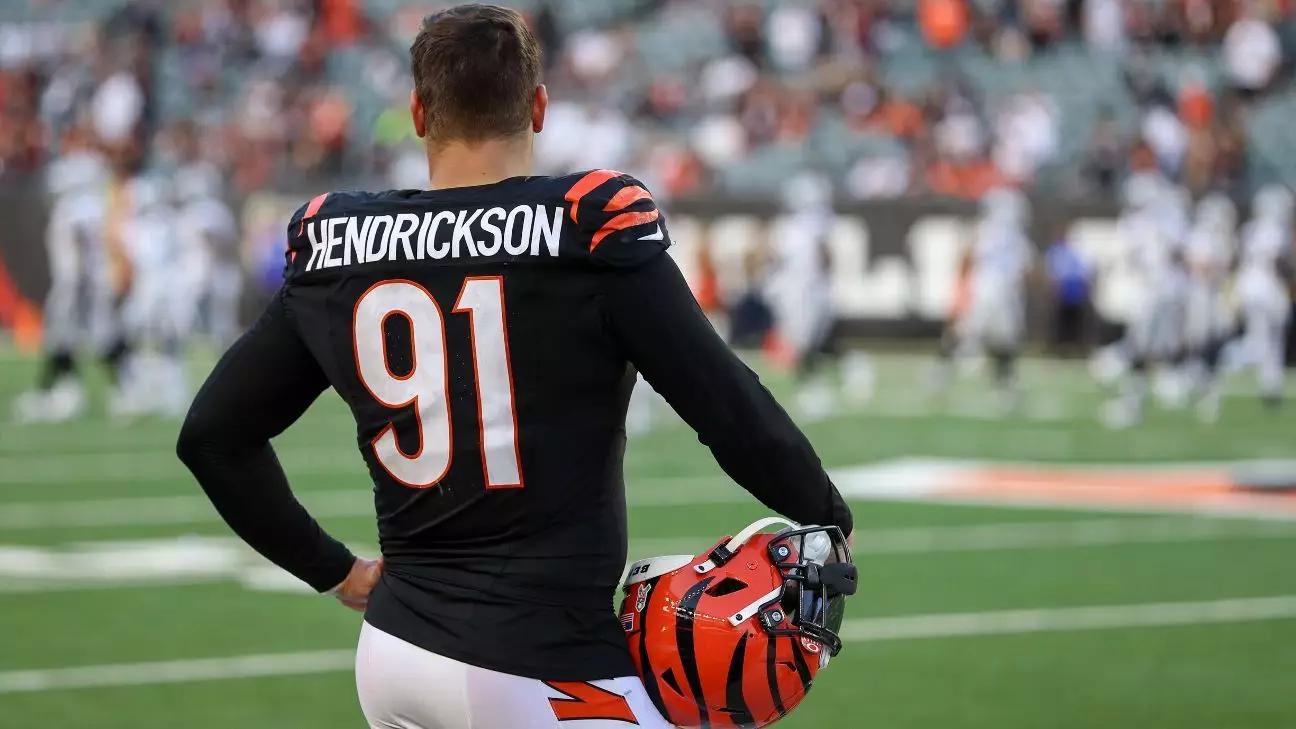In the high-stakes world of professional football, contract negotiations rarely remain simple or teenager-esque. They often embody a deeper struggle—one that pits player loyalty and performance against ownership’s desire for control and cost management. Trey Hendrickson’s ongoing stance in his contract dispute with the Cincinnati Bengals exemplifies this tension. While most comments in such disputes tend to be guarded or scripted, Hendrickson’s recent statements reveal a steadfast commitment to securing what he perceives as deserved—particularly, guaranteed money that matches his level of performance and importance to the team.
His case is emblematic of a growing trend among NFL players who, after risking injury and sacrifice, refuse to accept contracts that don’t provide sufficient financial security. Hendrickson’s record-breaking 2024 season, where he led the league with 17.5 sacks, underscores his elite status and justifies his demand for a more secure deal. Yet, the Bengals’ reluctance to guarantee compensation beyond the first year reveals the underlying power struggle—players desire stability, teams focus on flexibility. Hendrickson’s firm stance, explicitly rejecting the idea of a contract that leaves his financial future uncertain after the initial season, highlights a broader shift in athlete mentality—demanding respect for their contribution and a voice in their own economic destiny.
The Significance of Performance Recognition and Personal Security
Hendrickson’s words go beyond the typical “team-first” rhetoric; they reflect a personal principle rooted in fairness and long-term security. His comment that recognition isn’t what he’s chasing reveals a pragmatic mindset. He’s not interested in accolades or fleeting fame; he demands tangible protections that reflect his value. It’s telling that he emphasizes how crucial security is—particularly in the context of his family. For athletes like Hendrickson, football is more than a game; it’s a livelihood with real consequences for their loved ones.
His reluctance to participate in practice without a resolution shows that he’s willing to stand firm. This isn’t simply about monetary figures but about asserting control over his career trajectory. Hendrickson’s actions and statements indicate a refusal to accept the often one-sided negotiations that can leave players vulnerable. His stance may appear confrontational, but it ultimately reflects a legitimate pursuit of dignity and fairness—a message that players are no longer willing to be secondary to front office agendas.
About the Future: A Crossroads of Loyalty and Self-Preservation
As the season approaches, Hendrickson’s position raises crucial questions about loyalty, negotiation leverage, and the evolving dynamics between players and teams. His willingness to hold out, despite being in the prime of his career, signals a shift in player negotiations—where self-preservation and securing a fair deal take precedence over short-term team commitments. It sends a message to franchises nationwide: players are increasingly empowered and prepared to challenge the status quo.
While fans might sympathize with the team’s need for flexibility, the underlying issue is whether a league built on talent and sacrifice can sustain a culture that undervalues its performers. Hendrickson’s demand for guaranteed money isn’t merely about individual greed; it is a stand for fairness in an environment where players are often undervalued until they are either injured or past their prime. If he remains resolute, it could set a precedent, inspiring others to demand similar respect and security—potentially transforming how NFL contracts are negotiated well beyond Cincinnati’s borders.

